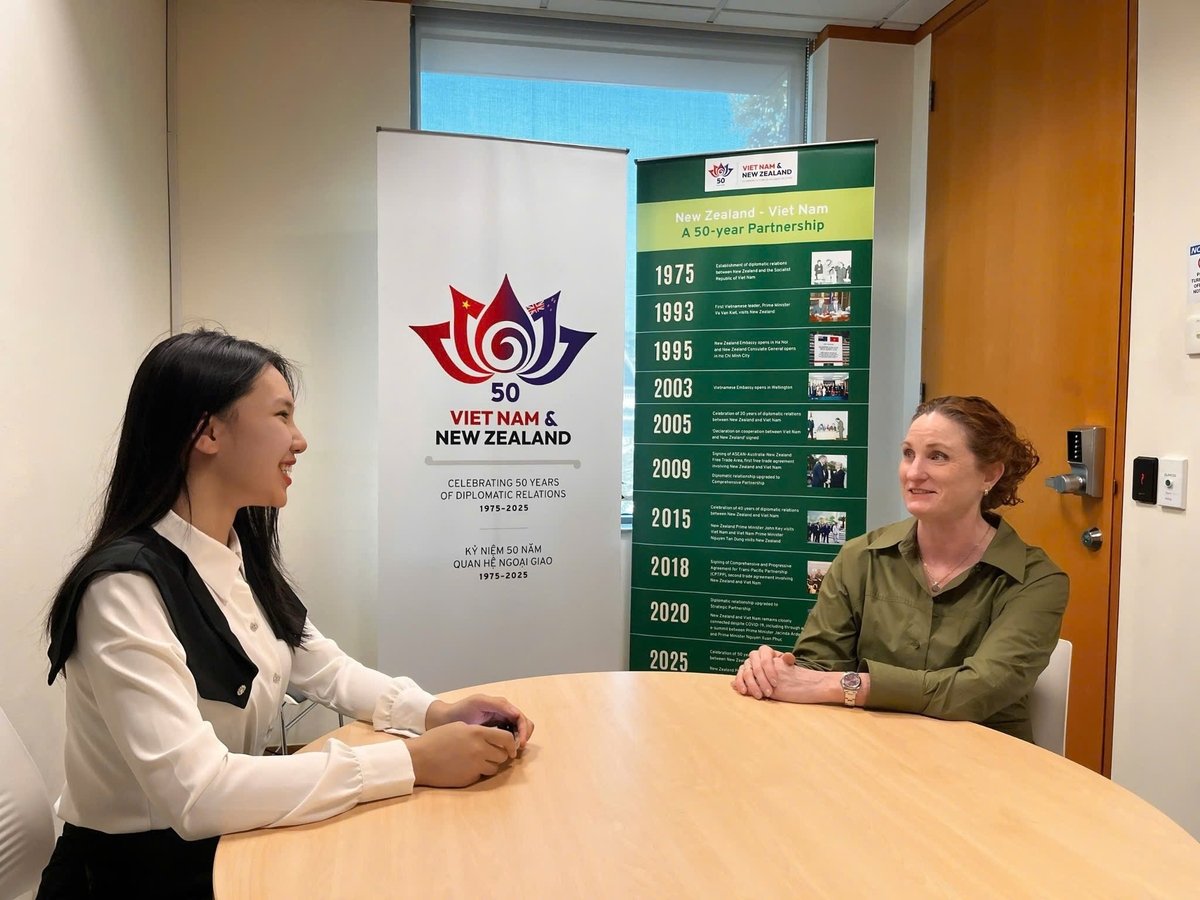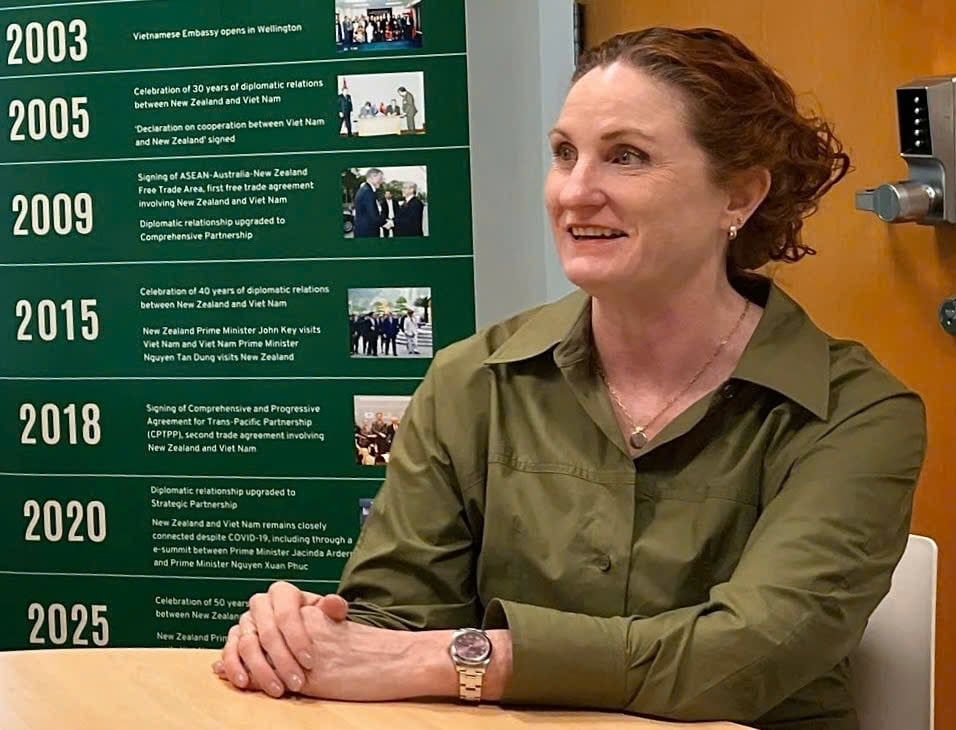December 6, 2025 | 04:54 GMT +7
December 6, 2025 | 04:54 GMT +7
Hotline: 0913.378.918
December 6, 2025 | 04:54 GMT +7
Hotline: 0913.378.918

Journalist Hong Ngoc from the Vietnam Agriculture and Nature Newspaper interviews Ms. Caroline Beresford, New Zealand Ambassador to Vietnam (right). Photo: Thu Ha.
In an interview with a reporter from the Vietnam Agriculture and Nature Newspaper, the New Zealand Ambassador to Vietnam emphasized the importance of the strategic partnership between the two countries in agriculture, climate change adaptation, and gender equality promotion. From practical models like the VietFruit project to community-based initiatives led by women, New Zealand is steadily working alongside Vietnam to build an agricultural sector that is both effective and inclusive, as well as sustainable.
Specifically, Ambassador Caroline Beresford highlighted Vietnam’s key role within the ASEAN region, noting that it is one of the few countries receiving both bilateral and regional development assistance from New Zealand.
According to the Ambassador, this reflects Vietnam’s significance in New Zealand’s foreign policy and development cooperation strategy.
New Zealand’s collaboration with Vietnam focuses particularly on agriculture, especially high-value crops and export-oriented processing.

Ms. Caroline Beresford, New Zealand Ambassador to Vietnam, discusses the prospects of agricultural cooperation between the two countries with the Vietnam Agriculture and Nature Newspaper. Photo: Thu Ha.
The VietFruit project is currently supporting smallholder farmers in improving the quality of products such as dragon fruit and passion fruit, while also promoting the application of scientific techniques like soil analysis, pest and disease control, and integrating sustainability into the value chain. The ultimate goal is to help Vietnamese farmers enhance product value and achieve sustainable incomes.
“I believe this is a highly relevant area for Vietnam - a country with a significant advantage in diverse and delicious fruit crops,” said Ambassador Caroline Beresford. “If we can support smallholder farmers in producing higher-value products, it will make a meaningful contribution to Vietnam’s long-term development goals.”
In addition, the Ambassador emphasized that women and girls are among the most affected by climate change and natural disasters. As such, New Zealand is committed to ensuring that 60% of its development budget includes component targeting women and girls.
For example, in small-scale projects like cash grant programs, communities will nominate individuals who deserve recognition for supporting women through hardships after COVID-19. According to the Ambassador, even modest support, like buying a pig or a few chickens, provides more than just income: it offers trust, resilience, and a sense of recognition and being heard.
Finally, the Ambassador noted that global trends are increasingly demanding more environmentally and socially responsible production. With its strengths in agricultural products, Vietnam has a major opportunity to rise in high-end international markets if it proactively transforms its production and supply chains toward sustainability. New Zealand remains committed to sharing experience and walking alongside Vietnam on this journey.
Translated by Phuong Linh

(VAN) As of 2025, the ASEAN region has a total of 69 ASEAN Heritage Parks recognized across its 10 member states. Among them, Viet Nam contributes 15 ASEAN Heritage Parks.

(VAN) Yok Don National Park has high biodiversity with numerous endemic plant and animal species, and it is also the only dipterocarp forest ecosystem conservation area in Viet Nam.

(VAN) Viet Nam and Brunei signed two important MOUs on fisheries and IUU, expanding cooperation in agriculture, the environment, and Halal exports, aiming to substantively implement joint projects.

(VAN) The Viet Nam Coconut Association worked with the International Finance Corporation (IFC) and businesses to promote the supply chain, enhance competitiveness, and develop the coconut industry sustainably.
![Hue aims for Net Zero: [2] Pioneering low-emission tourism](https://t.ex-cdn.com/nongnghiepmoitruong.vn/608w/files/huytd/2025/12/04/0633-dulichzero-4-095634_236-161125.jpg)
(VAN) The ancient capital of Hue has developed Net Zero tourism products and models, aiming to reduce carbon emissions and pioneer the establishment of Viet Nam's green tourism destination.

(VAN) C.P. Viet Nam has announced the successful completion of its goal to plant 1.5 million trees during the 2021-2025 period, a key milestone within company's long-term ESG strategy and its roadmap for emission reduction.

(VAN) This is an initiative of MAE aimed at creating a unified coordination mechanism to implement agricultural cooperation programs with developing countries.